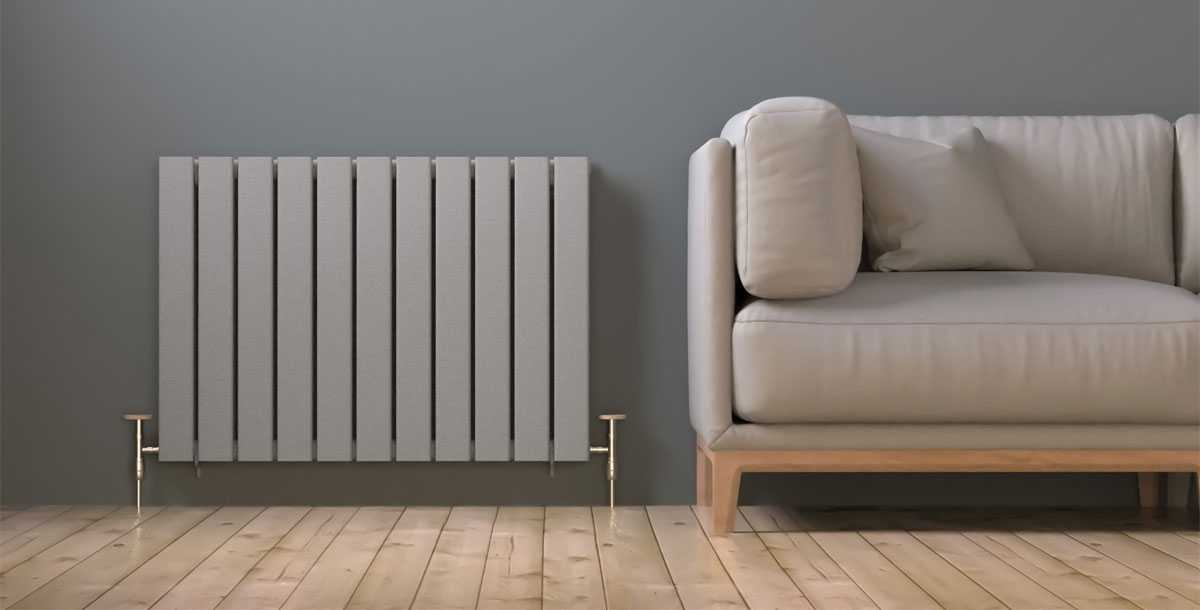
ALUMINUM OR STEEL RADIATOR? WHAT IS WORTH CHOOSING?
Radiators appropriately selected for our home will provide us with thermal comfort during cold days. So before you decide on a specific type of radiator, you should familiarize yourself with all the possibilities available on the market so that you do not regret your decision later. When choosing, it is worth paying special attention to the material from which the radiator is made. The most popular radiators are steel radiators and aluminum radiators. It is between them that you will most likely choose the one that will be in your house or apartment. See what features characterize both these radiators. This will allow you to make the right decision, which will translate into the fact that the heating in your four walls will work properly and effectively.
What is the difference between an aluminum radiator and a steel one? The main difference between steel and aluminum radiators is, of course, the material from which they are made. However, this is not the only difference that can be seen between the two types of radiators. The materials from which both these types of radiators are made have many individual features and parameters that affect their operation.
Features of a steel radiator
Steel radiators are still very popular. They can be divided into different types according to size, thermal possibilities and even the type of structure that can be adapted to your needs and housing conditions. Steel radiators are distinguished by their appearance that can be adapted to your taste. They are available in various shapes and colors, which gives them an advantage over aluminum solutions.
It is also worth knowing that steel radiators can have high power in a relatively small size. Their efficiency is also increased due to the small amount of water they work with. Their additional advantage is that they air out much less frequently than those made of aluminum.
Steel radiators also have their drawbacks that should be remembered. The big disadvantage of steel radiators is that they are prone to corrosion, especially when oxygen and poor-quality water get into the installation. It is recommended to install them in closed systems. Steel radiators should not be installed in bathrooms and open installations. Types of steel radiators Steel plate radiator - also known as panel radiator. Its size and number of panels can be adjusted to your needs. Its main advantage is that it looks very aesthetic and easily fits into any type of interior, without disturbing the appearance of the room in which it is located. There are single-plate, double-plate and three-plate heaters on the market. It is recommended to choose models that are additionally equipped with the so-called convection ribs, which are designed to increase the power of the heater. Such a radiator will work when the mounting surface of the radiator is small. Then, even though the radiator is small, it effectively warms the room.
Steel section radiator - as its name suggests, this type of radiator consists of several sections with the same parameters. These members are popularly called ribs. The ribbed radiator produces heat through special circulation channels.
Features of an aluminum radiator
Aluminum radiators are made of aluminum, copper and silicon alloys, and additionally they are reinforced with anaphoresis, which has an anti-corrosive effect. As a result, they will look good for a very long time, which in this case gives them an advantage over steel radiators. Their corrosion resistance allows them to be installed in both closed and open circulation, as well as in bathrooms with high humidity.
One of the biggest advantages of aluminum radiators, which often determines their purchase, is their weight. They are relatively light compared to radiators made of steel. This makes the installation of such a heater easier.
However, just like steel radiators, aluminum ones also have their drawbacks that should be borne in mind when buying.Aluminum radiators, although they are definitely lighter, are also distinguished by lower resistance to mechanical damage, which is related to their shorter service life. You should also avoid joining an aluminum radiator with elements made of copper. This can lead to the so-called electromechanical corrosion. So if the installation to which you want to mount the aluminum radiator is copper, the manufacturer may require the installation of special spacers on the joint and the use of corrosion inhibitors.
So which radiator to choose - aluminum or steel?
Which radiator you choose depends only on your individual needs. Both steel and aluminum radiators have their advantages and disadvantages. Before you decide to buy a specific model, it is worth getting acquainted with all the parameters and possibly